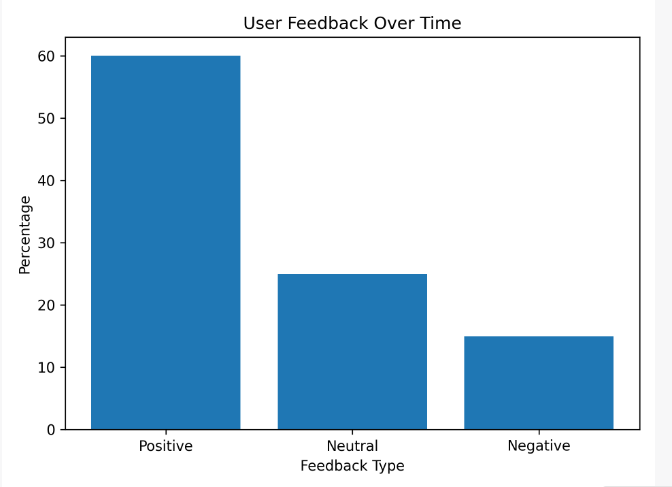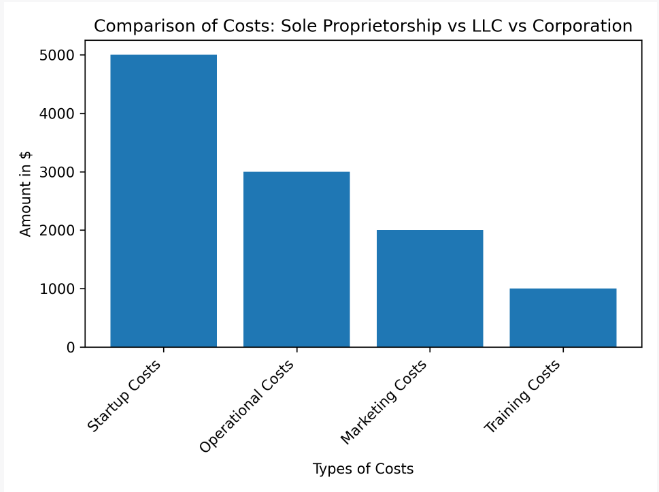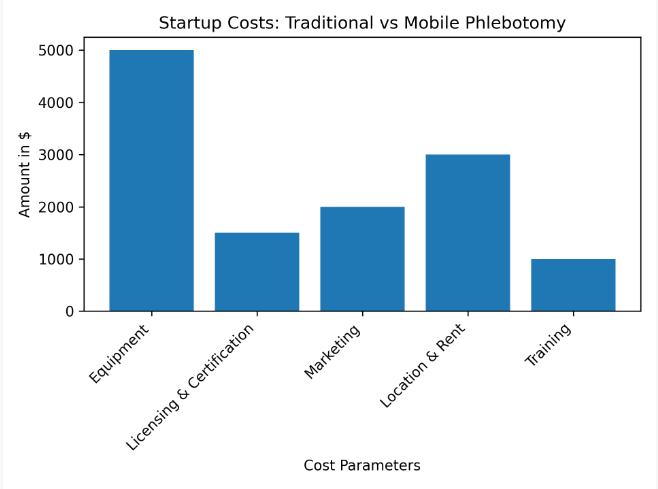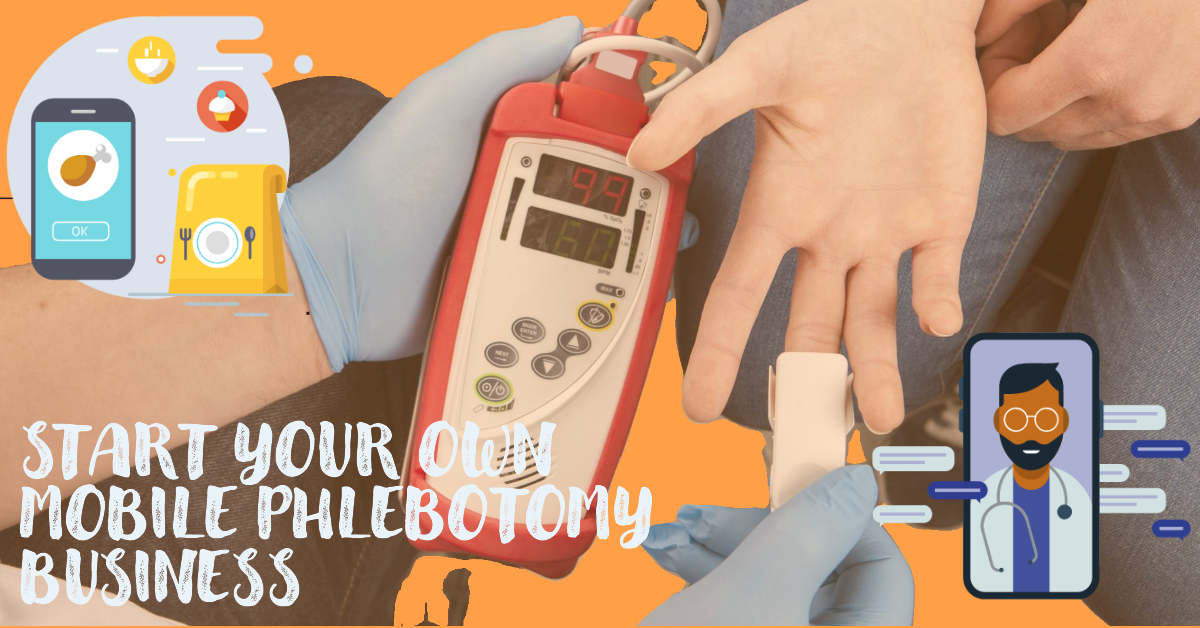The mobile phlebotomy business has brought about a huge change in healthcare these days. It’s not just a trend, it’s a revolutionary evolution in healthcare. Instead of waiting in endless lines at the clinic, people can now have a mobile phlebotomist visit their homes to do blood collection. The convenience it offers patients is unparalleled. If you are interested to start a mobile phlebotomy business, the opportunities are huge. The demand for at-home blood draws keeps increasing.
In this guide, we will explore how to start a mobile phlebotomy business, the essentials of a business plan, and the nuances of registering your business. For those looking to grow your business in this domain, the potential is vast, and the rewards, both financial and personal, are promising. Let’s kickstart this journey and transform your dream of owning this healthcare venture into a vibrant reality!
What is Mobile Phlebotomy?
Mobile phlebotomy is a healthcare service where trained phlebotomists come to you! Instead of going to a clinic or lab, mobile phlebotomists visit patients in their homes or offices to perform blood collection.

As a mobile phlebotomist, you provide on-site blood draws and prepare blood specimens to send to laboratories for testing and analysis. This convenient at-home service saves patients a trip for any ordered lab tests.
Key Services Offered
- At-home blood collection
- Blood draws for tests ordered by the physician
- Proper handling and transportation of blood samples
- Complete paperwork detailing tests performed
Benefits of Mobile Phlebotomy
Mobile phlebotomy offers significant advantages over traditional in-clinic blood collection:

- Convenience – Patients can avoid trips to doctor’s offices or labs for bloodwork
- Comfort – Blood can be collected in a familiar home environment
- Efficiency – Faster to have a phlebotomist come to the patient’s location
- Demand – The growing need for at-home healthcare services
Traditional vs. Mobile Phlebotomy: A Snapshot
| Criteria | Traditional Phlebotomy | Mobile Phlebotomy |
|---|---|---|
| Location | Clinics or Hospitals | Anywhere the patient prefers |
| Wait Time | Often long, especially during peak hours | Typically none; it’s by appointment |
| Convenience | You travel to the phlebotomist | The phlebotomist travels to you |
| Equipment | Fixed setups | Portable equipment and supplies tailored for mobility |
| Experience | Clinical, often impersonal | Personalized, with a touch of care |
So, if you are a business owner looking to start a mobile phlebotomy business, or perhaps a phlebotomist aiming to offer mobile phlebotomy services, there’s no better time than now. The industry is full of opportunity, and with the right business plan, you can grow your business and make a significant impact.
Why Consider Mobile Phlebotomy?
Meeting Growing Demand for At-Home Healthcare
- Rise of mobile health services and demand for in-home care
- Mobile phlebotomy provides needed on-site blood collection
- Allows patients to avoid trips to clinics/labs for bloodwork
Starting a Lucrative Business
- Mobile phlebotomy presents a profitable business opportunity
- Low startup costs compared to other healthcare businesses
- Recurring revenue streams by building a client base
- Tap into unmet demand for at-home phlebotomy services
Providing an Essential Healthcare Service
- Blood draws and collection are critical healthcare services
- High-quality phlebotomy key for accurate lab test results
- Mobile phlebotomy increases access to essential blood testing
Market Research and Business Planning
Understanding the Market Dynamics
To ensure the success of your mobile phlebotomy business, it’s crucial to grasp the intricacies of the market. This involves:
- Demand Analysis:
- Evaluate the need for mobile phlebotomy services in specific regions.
- Use tools like surveys and interviews to understand the local demands and preferences.
Spotting the Ideal Clientele:
Your mobile phlebotomy service should cater to a broad spectrum of clients:
- Healthcare Professionals: Cater to doctors and nurses who require efficient blood collection for their patients.
- Elderly Patients: Offer services to those who find it challenging to visit hospitals or clinics.
- Busy Professionals: Target individuals with hectic schedules, emphasizing the convenience of your service.
Essential Market Research Queries
Delve deep with these pivotal questions:
- Who exactly are the potential clients? Is it the healthcare professionals, or are there others like sports professionals requiring regular blood testsd?
- What’s the pulse of the local demands? Are there specific times or seasons when the demand spikes?
- How’s the competition shaping up? Understand the business structure of competitors, their strengths, and areas of improvement.
Planning Your Business Strategy
- Business License & Registration: Ensure you register your business and obtain the necessary phlebotomy certification.
- Partnerships: Collaborate with healthcare institutions or individual healthcare professionals to boost your client base.
- Equipment & Supplies: Invest in essential tools like phlebotomy chairs, collection tubes, and other supplies.
- Marketing & Growth: Develop a robust business plan. Utilize social media platforms and other marketing strategies to promote your services and grow your business.
Choosing a Business Structure
Exploring Business Structures
When starting your mobile phlebotomy business, the foundation lies in selecting the right structure. Here’s a breakdown:
Sole Proprietorship
- Pros:
- Simple to set up.
- Direct control over business decisions.
- No separate business tax returns.
- Cons:
- Personal liability for business debts.
- Might be challenging to raise funds.
LLC (Limited Liability Company)
- Pros:
- Protects personal assets.
- Tax flexibility.
- Less paperwork than corporations.
- Cons:
- More expensive to establish than a sole proprietorship.
- Varies by state, affecting the business in your state.
Corporation
- Pros:
- Limited liability.
- Easier to raise capital.
- Established and recognized structure.
- Cons:
- Complex and costly to set up.
- Double taxation unless set up as an S-corporation.

Laying the Groundwork for Success
The appropriate business structure is pivotal for:
- Protecting personal assets.
- Tax benefits.
- Business growth and scalability.
Registration and Licensing
- Ensure you register your business with the right authorities.
- Understand the licensing requirements specific to the phlebotomy industry.
- Obtain an Employer Identification Number (EIN) for tax purposes.
Legal and Certification Requirements
Licensing and Permit Essentials
- State-Specific Regulations: Each state has its unique set of licenses and permits for mobile phlebotomy businesses. It’s crucial to research and adhere to your state’s guidelines.
- Business Registration: Before you start a mobile phlebotomy business, ensure you’ve registered your business name and obtained the necessary business license.
Certification: A Mark of Professionalism
- Phlebotomy Certification: This isn’t just a formality. Being a certified phlebotomist or mobile phlebotomist showcases your expertise and dedication to the craft.
- Continuous Education: The phlebotomy industry is dynamic. Engage in new phlebotomy education series and training programs to stay at the forefront.
Why Keeping Up Matters
It’s not just about starting; it’s about sustaining. Ensure you:
- Renew licenses and certifications timely.
- Adhere to the phlebotomy industry norms and best practices.
- Stay informed about changes in phlebotomy and show appreciation for the profession by continuously learning and attracting potential clients.
- Upholding Standards: Regular phlebotomy training ensures you’re aligned with the latest phlebotomy industry practices and standards.
Financial Planning

Budgeting for Success
- Breakdown of startup costs:
- Equipment and Supplies: Investing in quality phlebotomy chairs, collection tubes, and other essential equipment ensures efficient blood collection.
- Licensing and Certification: Allocate funds for obtaining phlebotomy certification, business licenses, and necessary permits.
- Marketing and Outreach: Building a website showcasing your services, leveraging social media platforms, and other marketing strategies require a dedicated budget.
- Estimate monthly operating costs:
- Gas, vehicle maintenance
- Liability insurance
- Staffing/contractors
Breaking Down the Startup Costs for a Mobile Phlebotomy Business:

Breakdown:
- Startup Costs: The initial investment required to start the business.
- Equipment: The necessary tools and machinery for blood collection and testing.
- Licensing: The legal permissions and certifications required to operate.
- Marketing: Efforts to promote and grow the business.
- Training: Ensuring staff are well-trained and updated with industry standards.
- Safety Standards: Ensuring all operations are safe for both staff and clients.
- Compliance: Adhering to all industry and legal standards.
- Service Quality: The overall quality of service provided to clients.
The plot provides a visual comparison between the importance of each aspect (in blue) and its effectiveness (in orange). This can help you identify areas that might need more attention or investment.
Exploring Financing Options
- Small Business Loans: Many institutions offer small business loans tailored for healthcare ventures.
- Personal Savings: Using your savings can give you more control but ensure you have a backup plan.
- Partnerships: Collaborating with healthcare professionals or existing mobile phlebotomy providers can reduce initial costs.
Equipment and Logistics
Essential Equipment Checklist
- Phlebotomy Chairs: Comfortable and adjustable chairs ensure ease for both the phlebotomist and the patient.
- Collection Tubes: Vital for storing blood samples securely and maintaining sample integrity.
- Mobile Service Vehicles: Reliable transportation is key, especially when offering on-site blood collection services.
Quality Over Quantity
- Investing in top-notch equipment guarantees accurate blood testing and boosts the mobile phlebotomy business’s reputation.
- Regular maintenance and updates, in line with phlebotomy industry standards, ensure longevity and efficiency.
Marketing and Growth
Digital Dominance
- Social Media Platforms: Utilize platforms like Facebook, Instagram, and LinkedIn to showcase your mobile phlebotomy services. Engage with potential clients through informative posts, patient testimonials, and interactive sessions.
- Website Showcasing: Develop a user-friendly website detailing your scope of services, phlebotomy training, and blood testing methods. Incorporate SEO strategies to rank higher in search results.
Forge Strong Connections
- Healthcare Professionals: Regularly network with doctors, nurses, and clinics. Their referrals can be invaluable.
- Partnerships: Collaborate with phlebotomy staff and schools to offer special packages or new phlebotomy education series. This not only educates but also broadens your client base.
Challenges and Solutions in Mobile Phlebotomy:
Challenges:
- Safety Protocols: Ensuring every blood draw is conducted safely, especially in diverse environments.
- Regulatory Compliance: Different states have varying licenses and permit requirements, making it complex for mobile phlebotomy business owners.
- Consistent Quality: Maintaining a uniform service quality to ensure client trust and loyalty in a growing demand landscape.
- Business Growth: Scaling the business while ensuring the service quality remains uncompromised.

Solutions:
- Regular Training: Offer continuous phlebotomy training sessions for staff, ensuring they are updated with the latest safety and industry standards.
- Dedicated Compliance Team: Establish a team or hire a consultant to stay informed about changing phlebotomy industry standards and ensure adherence.
- Feedback Mechanism: Implement regular feedback sessions with clients and invest in high-quality equipment and supplies for consistent service.
- Strategic Partnerships: Build collaborations with healthcare professionals, offer specialized services, and promote the business on social media platforms for broader reach.
Frequently Asked Questions – FAQs
A mobile phlebotomy business offers on-site blood collection services, eliminating the need for patients to visit traditional labs.
The cost to start a mobile phlebotomy business is approximately $10,000-$15,000 for a vehicle, equipment, licensing, and insurance and marketing, with costs varying based on location and scale.
The legal requirements for a mobile phlebotomy business include obtaining state licenses, a CLIA certificate, and adhering to OSHA guidelines. In addition, they must verify HIPAA compliance and complete state-specific requirements for phlebotomy certification.
Market your services through social media platforms, networking with healthcare professionals, and forming strategic partnerships.
Essential equipment includes phlebotomy chairs, collection tubes, and transportation facilities for safe blood handling.
Earnings from a mobile phlebotomy business are influenced by demand, location, and service quality. Typically, they range between $40,000-$80,000 annually, contingent on the region and patient volume.
Yes, phlebotomy certification is often required, with standards varying by state and ensuring adherence to industry best practices.

Wrapping Up:
Starting a mobile phlebotomy business requires embracing adaptability, ethics, and continuous professional development. Aspiring phlebotomy business owners must prioritize delivering quality blood collection services and responsibly managing client samples. Though uncertainties exist, the surging demand for mobile phlebotomy underscores ample opportunities in this field.
By securing business licenses, leveraging social media marketing platforms, and honing skills as regulations evolve, one can strategically open their own mobile phlebotomy practice. While challenges await, those with a patient, community-focused approach and passion for advancing healthcare access will find immense fulfillment in this meaningful pursuit.
The door is open to benefit society by providing accessible, compassionate mobile phlebotomy care – now is the time to take the first inspirational step toward success by embracing this entrepreneurial mobile phlebotomy venture.

